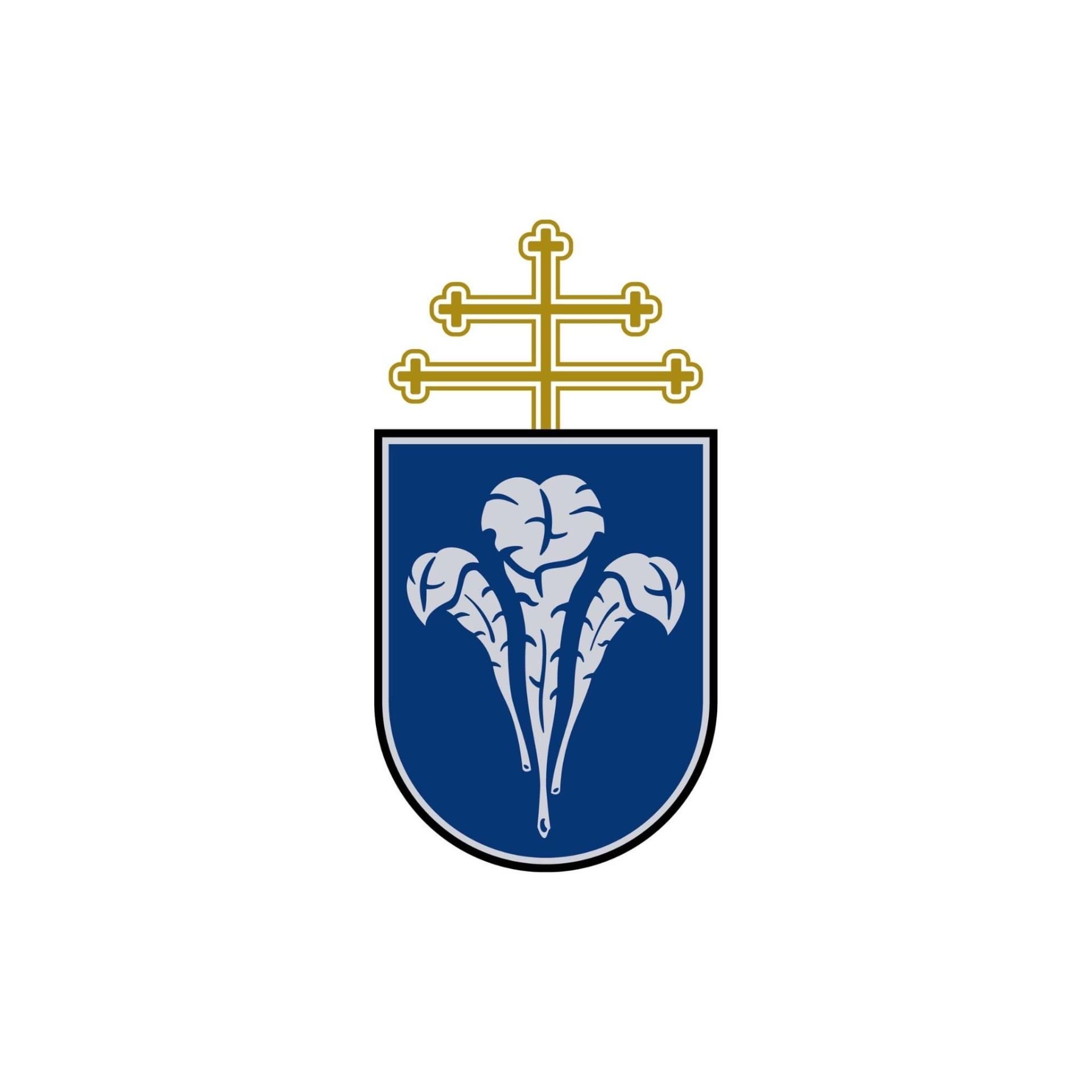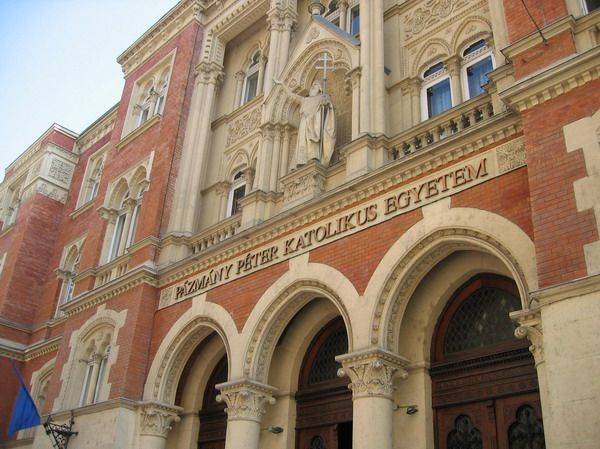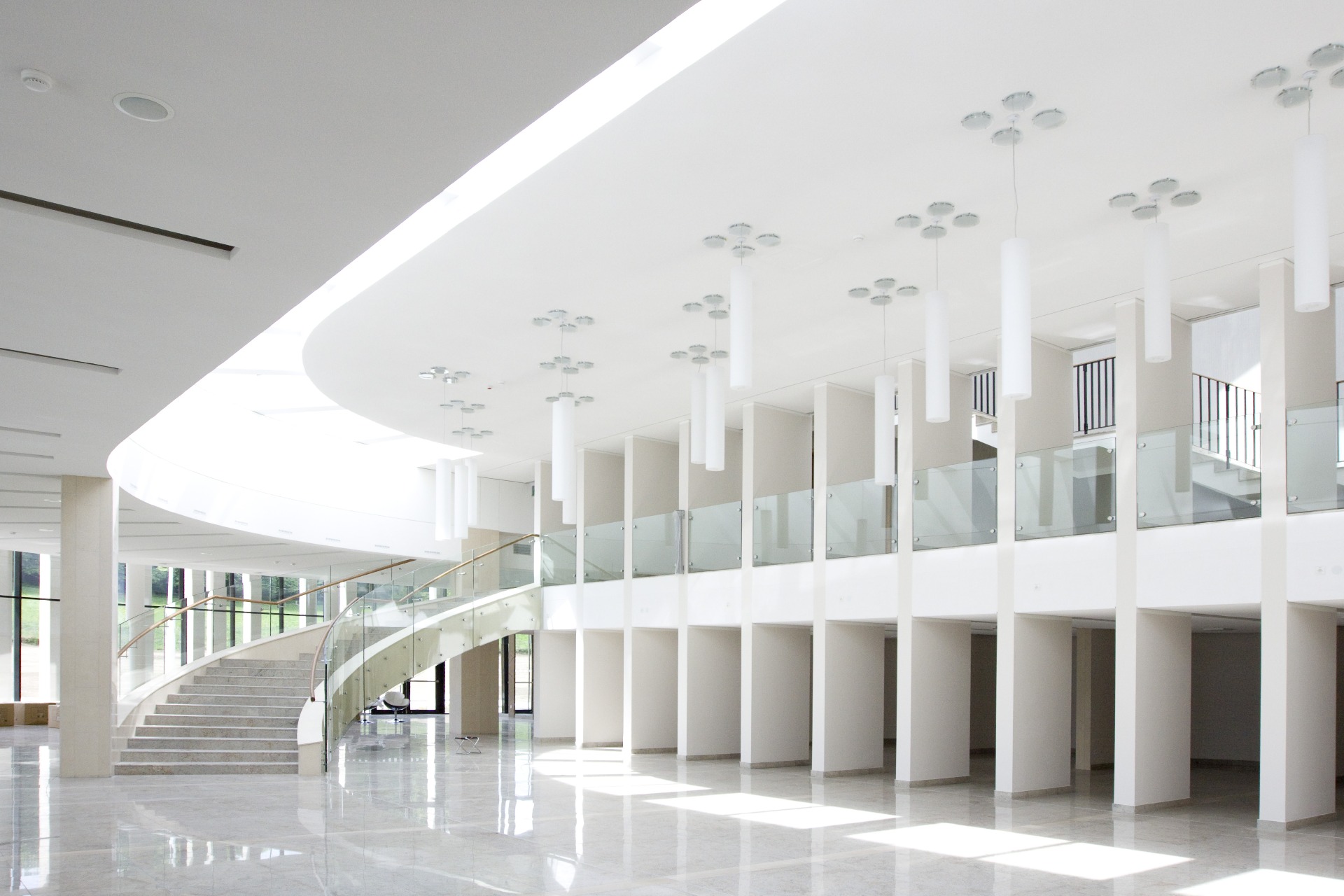PROGRAMS
The Protection of the Interest of Future Generation
The roundtable will explore the role and achievements of the Deputy Commissioner in protecting the interests of future generations. Participants include the current spokesperson and two of her predecessors.
Participation is free and requires registration:
"Man is called to a fullness of life which far exceeds the dimensions of his earthly existence, because it consists in sharing the very life of God."
Evangelium Vitae, 2.
In recent years, a number of events have again directed attention to the problem of abortion. On the one hand, the US Supreme Court has overturned decades of precedent ensuring women's right to abortion by ruling that the Constitution does not include a right to abortion.
On the other hand, the European Parliament has adopted a resolution calling for the right to abortion to be included in the Charter of Fundamental Rights.
As a result, opposite trends have started to evolve in Europe. In Hungary, the so-called 'heartbeat decree' introduced a new condition in the abortion application process, while in France, for the first time in the history of humankind, the right to abortion was enshrined in the constitution.
Therefore, once again, the following questions arise:
When does human life begin? Is the foetus a legal subject? What abortion regulatory models exist? On what grounds can abortion be requested? Which fundamental rights are conflicting and how can the conflict be resolved? What is the position of the Catholic Church? How is abortion different from other surgical operations? Are doctors and nurses entitled to refuse to assist in an abortion? What is the relationship between abortion policy and demographic data?
Abortion raises significant legal issues in addition to ethical, philosophical, religious and medical questions. The panellists will approach these issues from the perspectives of constitutional law, medicine, legal ethics and bioethics, and will contribute to a fuller understanding of the abortion issue in the framework of a lively discussion.
The roundtable discussion is organised by the GENEZIS Student College of Excellence of the Research Institute for the Integrity of Creation in cooperation with the István Ereky Centre for Public Law Research.
Decisions at the beginning of life
Decisions at the beginning of life: on abortion from the perspective of life
12. 05. 2025. 16:00-20:00, PPKE JÁK II. lecture hall (ground floor)
Our invited guests:
- Benadett Rojkovics, head physician, President of the Hungarian Society of Bioethics
- Júlia Győri, obstetrician-gynecologist specialist
- Balázs Schanda, Head of Department, university professor, Constitutional judge
- László Komáromi, habilitated associate professor, Dean
- The Rev. Kálmán Nyéky, Senior Research Fellow, Pastor of the Basilica of Andocs
The program was organized in collaboration with the Ereky Research Center. Their contact information:
Senior Research Fellow Boldizsár Szentgáli-Tóth (HUN-REN TK JTI) pointed out that their research team is investigating the growing role of AI in society through the lense of fundamental rights, and assessing when AI is risky and when it is beneficial. He explained that from this perspective, the right to a fair trial, the freedom of expression and the right to a healthy environment could be highlighted and examined. Several codes of ethics have been published in the field of soft law (non-binding recommendations, guidelines – editor), while the AI-regulation of the EU is nothing but hard law (binding legal acts, regulations – editor) in itself. At the same time, the judicial application of the law is immature, and there is a need to develop tests that can be used by the courts.
Lieutenant Colonel Ferenc Petruska, Associate Professor (Ludovika University of Public Service, Eötvös József Research Centre, Research Institute for Religion and Society) highlighted that AI is a metajuristic (extra-legal – editor) phenomenon. It has unparalleled capabilities that make its legal regulation difficult. It can also act as a multiplier (i.e. AI can extend and multiply human performance – editor), which humans, relying on their own capabilities, are unable to follow and catch up with. He revealed four characteristics of AI, illustrated with examples, that make it uncompetitive with humans: autonomy, speed, continuous workload and an extremely wide context window (the latter term meaning that AI can handle huge amounts of information that are beyond human capacity: it can process large amounts of data quickly and efficiently, and can see through contexts that would be too complex for the human brain – editor). However, the importance and necessity of human knowledge will endure, as the prompting of AI (inputting instructions into the AI system – editor), the validation and communication of results is unthinkable without human expertise.
Associate Professor Gábor Kecskés, Research Fellow (Faculty of Law and Political Sciences, Széchenyi István University, HUN-REN TK JTI) emphasized that AI will not take away the work of lawyers, but is expected to become a competitive advantage for those who use it well. It is important to maintain expertise in order to be able to interpret the results effectively.
He recalled the Prussian Railways Act; as society has accepted the existence of the railways, it can be assumed that it will be able to accept the presence of AI as well and apply the new technology. Environmental law, the field of which is largely covered by soft law, can be a good analogy for the regulation of AI. Despite the divergent regulations of states, the basic principles of environmental law can create unity. He also highlighted the precautionary principle, which states that the best available solution for the environment should be chosen according to the current state of science.
Ágnes Tahyné Kovács emphasized the principle of cooperation in the field of environmental law. Quoting Pope Francis, she suggested that algor-ethics (an ethical approach to the development of algorithms – editor) could be the bridge that can provide a framework for cooperation between developers, producers, users and decision-makers.
Written by: Ágnes Tahyné Kovács (PPKE JÁK TVKI)
Source and photos: PPKE, Magyar Kurír
AI and Law – Roundtable-discussion in the Student College of the Research Institute for the Integrity of Creation of PPKE
Domestic news – 12. March 2025, Wednesday | 11:18
On 5 March, the GENEZIS Student College of Excellence of the Research Institute for the Integrity of Creation of the St. Pope John Paul II Research Centre of the Pázmány Péter Catholic University (PPCU) organised a roundtable discussion in Budapest, which focused on issues related to environmental law, constitutional law and creation protection in the context of artificial intelligence (AI)-based applications.
The programme, held in cooperation of the Department of Environmental Law of the Faculty of Law and Political Sciences (JÁK) of PPKE and the HUN-REN Institute for Legal Studies of the Centre for Social Sciences (TK JTI) was entitled The Environmental and Constitutional Law segment of Artificial Intelligence Applications – Sustainability Issues in the Age of Algorithmic Constitutionalism.
The participants of the roundtable agreed that the regulations of AI applications are anthropocentric, that there are fundamental directions and ethical principles in the application of which there is global uniformity. They agreed on the importance of validation, arguing against the complete absence of the human factor (validation here means checking the correctness, reliability and accuracy of the application of AI – editor).
Associate Professor Ágnes Tahyné Kovács, Senior Research Fellow (PPKE JÁK TVKI) affirmed as a working definition for the discussion that AI is a technology fed with a large amount of data that is able to communicate with the outside world and is not only able to draw targeted inferences, but is also capable of carrying out other, different inferences.
She recalled Pope Francis' expression of views on the subject of the care for creation and divided the issue of the care for creation into four parts: the impacts on individuals and society, and the impacts on the natural environment in the field of software development and hardware applications. The participants of the roundtable discussion focused on examining regulatory options.
In Hungary, a good practice has also been implemented in the Krishna Valley in Somogyvámos, where textile production is now carried out in such a way that the principles of sustainability are observed throughout the entire work process, from the cultivation of the plants to the sewing of the finished garment, i.e. throughout the entire life cycle of the garment – in other words, the approach is one of creation protection. "Without religious conviction, this would not be possible," said Péter Németh, President of the Eco-Valley Foundation.
The speakers agreed that small communities have a sustaining power. Revitalising isolated regions and, at the same time, shaping environmental awareness brings to the surface many difficulties that are rarely talked about. Working in the dressmaker's shop run by the Hungarian Charity Service of the Order of Malta in Tarpa means survival for many Roma women living in difficult circumstances – and through them, for their families. "Being able to escape from the overwhelming social and health-related difficulties of family life for a longer or shorter period of time and doing creative work gives strength even in the midst of the greatest hopelessness," summarized textile artist and designer Betty Káli.
Made from used jeans - recycled is the trendy word - their products, aimed at younger people, are extremely popular. Pencil holders and bags, bean bags find their way to the younger generation. In the dressmaker's shop of the Charity Service of the Order of Malta, the conservation approach is put into practice through excellent design work that produces products from recycled, natural materials, the lifespan of which exceeds that of the products offered by multinationals.
Their activity stretches far beyond job creation, as they also "get involved" in the social situation of each employee, and this requires extraordinary preparedness and flexibility. In recent months, the PPKE JÁK Caritas, a community organizing charitable activities, has been collecting used jeans for the dressmaker's shop, which were handed over to ReFarmerBank representatives on the spot by the community, represented by Mátyás Hrubi, a student of the PPKE JÁK.
The participants of the roundtable discussion were convened and the program was moderated by Ágnes Tahyné Kovács (PPKE JÁK, TVKI), head of the GENEZIS Student College of Excellence.
Written by: Ágnes Tahyné Kovács (PPKE JÁK TVKI)
Source and photos: PPKE, Magyar Kurír
Sustainability in the Textile Industry – Discussion at the Student College of the Research Institute for the Integrity of Creation of PPKE
During Advent, many people take charitable action and reach out to the poorest. Hearing the pleas of the poor is far more than charity. With this thought in mind, on 4 December the GENEZIS Student College of Excellence of the Research Institute for the Integrity of Creation (TVKI) of the St. Pope John Paul II Research Centre of the Pázmány Péter Catholic University (PPCU) organised its second St. Martin's Day in Budapest.
The topic of the highly successful roundtable discussion was the connection between the catching up of regions that lag behind and the textile industry in the context of sustainability and creation protection.
The fashion industry has been a cause of environmental and social disasters over the past twenty years, becoming the fourth most polluting manufacturing sector on Earth. Clothing production, which involves the emission of pollutants, is also exploitative in terms of natural resources. "The social and societal situation of the workers involved in the production is also inhumane and is a form of modern-day exploitation," emphasized Dóra Farkas (PPKE Doctoral School of Law and Political Sciences).
Seeing the immeasurable pollution of the luxury textile industry, Szilvia Daskó Györgyné Szabó (dressmaker's integrator, Hungarian Charity Service of the Order of Malta) embarked on the construction of the ReFarmerBank in Tarpa. In their work in the field of social inclusion, the Hungarian Charity Service of the Order of Malta have always considered it a fundamental goal to ensure that their useful work serves a good purpose: they strive to restore the dignity of those living on the margins of society.
19.11.2024.
Ethical and legal challenges of artificial intelligence
We are exploring the challenges of the ethical and legal implications of the application of artificial intelligence (AI).
Can a system be ethical? Can it be neutral in terms of values? How has the European Union regulated ethical issues in the AI Act? We are looking for answers to questions related to plagiarism ethics in the context of higher education and copyright. The regulation of vulnerable groups in the courts in the AI era is explored in an analytical presentation. One of our researchers will give insight into what superintelligence meant in the past and today (involving the religious aspect of the world-mapping of learning models). We can learn about a few of the dilemmas related to the application of genomic language models, and the potential of using large language models in higher education. Legal and ethical considerations of manipulative applications of AI will be discussed, as well as the ethical codes of AI.
In his 57th World Day of Peace message (01.01.2024), the Holy Father said that the remarkable advances in the field of artificial intelligence are having a rapidly growing impact on human activities, personal and social life, politics and the economy. Pope Francis wished to call for an open dialogue on the significance of these "new technologies, endowed with disruptive potential and ambivalent effects". He recalled already in August 2023 that we must work to ensure that the logic of violence and discrimination does not take root in the production and use of these tools, to the detriment of the most vulnerable and excluded. If we want AI to serve as a defender of humanity and our common homeland, we must make sure that its concept and application are based on responsibility.
The moderators of the discussion were Dr. Balázs Gerencsér, head of the Ereky Public Law Research Center, and Dr. Kinga Rita Zakariás, chief advisor to the Constitutional Court of Hungary.
The importance and timeliness of the roundtable discussion was ensured by the fact that in recent months, the public has been frequently concerned about end-of-life issues, and that the European Court of Human Rights has also delivered a significant ruling in the case of a Hungarian applicant. Speakers addressed the importance of the preservation of dignity in the most vulnerable situations of life, introduced the medical and bioethical implications of these situations, and spoke about the crimes related to assisted suicide and homicide. They demonstrated and discussed the various problems around euthanasia from both a medical and a legal perspective, and highlighted the dignity-related aspects of unbearable suffering experienced as we approach the end of our lives. From a constitutional law perspective, the importance of individual self-determination and the protection of life were also discussed.
Regarding the situation when patients who suffer from serious, incurable and imminently fatal illnesses request the shortening of their lives and assisted suicide, the speakers explained that, in addition to the legal perspective, ethical, philosophical, religious and medical aspects must also be examined, and that such actions are not only prohibited by national legislation, but are also morally unjustifiable.
Summary – Researchers' Night
End-of-life Decisions – roundtable discussion
27. 09. 2024. 17:00-19:00
Venue: PPKE JÁK Gy001
The Ereky Public Law Research Center of the Faculty of Law and Political Sciences of Pázmány Péter Catholic University and the Genesis Student College of Excellence organized a roundtable discussion about End-of-life Decisions – an event of the "Researchers' Night", where renowned professors and researchers acquainted the audience with concepts related to end-of-life decisions and euthanasia, as well as with the importance of regulation from both medical and legal perspectives.
The participants of the roundtable were Dr. Bernadette Rojkovich PhD, President of the Hungarian Bioethics Society, Prof. Dr. Ervin Belovics, lawyer, prosecutor, Professor and Head of the Department of Criminal Law at the Faculty of Law and Political Sciences of Pázmány Péter Catholic University, Dr. László Komáromi, Dean of the Faculty of Law and Political Sciences of Pázmány Péter Catholic University, and Prof. Balázs Tibor Schanda, Constitutional Judge, Professor and Head of the Department of Constitutional Law at the Faculty of Law and Political Sciences of Pázmány Péter Catholic University.
The participants of the discussion examined end-of-life decisions, euthanasia and other related relevant issues from the perspectives of constitutional law, criminal law, legal ethics and bioethics. As one of the final conclusions it was stated that these complex issues can only be discussed and debated in a meaningful way with a synergistic approach, involving several perspectives and disciplines.
WORKSHOP
During the workshop on September 11, 2024, the members presented their research results in a keynote presentation. The comments and insights from others further shaped the understanding of the topic and guided the research members.
A consistently positive atmosphere is the strength of GENEZIS workshops.
In recent months, public opinion has been shaken by questions related to the end of our lives. Are there vulnerable situations in life when it is no longer possible to live with dignity? Can we decide to end our own lives if we feel that this is the only way to put an end to unbearable suffering? What are the boundaries of crime in such cases? What are the rights and obligations of the doctor? What are the boundaries of individual self-determination and the protection of life? In an unusual format, renowned professors and researchers will be shedding light on the complexity of these questions, the answers to which are far from black and white. Shortening the dying time of people with serious, incurable illnesses at their own request or assisting their suicide raises important legal issues as well as ethical, philosophical, religious and medical concerns. The European constitutional courts have started to develop answers in recent years, but we are far from having a uniform approach to the issues at stake. The panellists will approach these issues from the perspectives of constitutional law, criminal law, legal ethics and bioethics, and will provide support for a fuller understanding of end-of-life decisions in a lively discussion. The panel discussion is organised by the Ereky István Public Law Research Center (ereky.jak.ppke.hu) in cooperation with the GENEZIS Student College of Excellence.
LAW AND CREATION CARE - Sustainability Issues - Legal Answers conference:
Season of Creation
The Week of Creation draws our attention to the fact that order prevails in the created world, and it is solely up to humans to support it. The shared documents call for collective reflection and action.
The Right to Education in the System of Sustainable Development Goals (SDGs)
Also thanking the István Ereky Centre for Public Law Research for co-organising the conference entitled The Right to Education in the System of Sustainable Development Goals (SDGs), we closed yesterday a fruitful and meaningful conference with the participation of about 58 participants.
The event was opened by the head of the Student College of Excellence.
In his opening speech the Rev. Mons. Géza Kuminetz, Rector of PPKE, drew the attention of the audience to the global culture war, the strength of names and their usage, and the power of information. He stressed the need to strengthen the firewall of consciousness.
Professor Dr. Gyula Bándi, Ombudsman for Future Generations, presented the constitutional framework and the institutional framework of Hungarian sustainability regulation, also highlighting some of its shortcomings and adversities.
Lajos Aáry-Tamás, Commissioner for Education Rights, explained the importance of the provisions of the Fundamental Law of Hungary in his presentation on the current situation of the protection of rights. The Fundamental Law formulates the right to education, the pillars of which are the possibility of acquiring the "highest possible knowledge", which means complex, overall education, i.e. access to education and culture. Based on these provisions, education has a much greater importance than we see it today. Lajos Aáry-Tamás pointed out that if education decreases, then future generations will be deprived of the opportunity to acquire the knowledge of humanity so far. According to the Commissioner of Education Rights, learning from each other is necessary to shape the future. At the end of his presentation, he suggested that we boldly look into the future and ask the question: "why do we teach?" and "what should we Hungarians be like in fifty years?"
Associate Professor Ágnes Tahyné Kovács (organizer), after introducing the two organizing research bases, drew attention to some of the parallels between the activities of the UN and the Holy See, and stressed the relevance of the joint work in the context of the right to education.
The second panel - Quality Education and Sustainability - was chaired by Bálint Bartl, PhD student.
Andrea Nyíri, Creation Protection Officer of the Catholic Pedagogical Institute (KAPI), presented the creation protection activities of her institute and its experiences in education.
Professor Nándor Birher evaluated the quality of education management from the perspective of quality assurance.
After a brief description of the historical definitiveness of the Hungarian education administration, Balázs Szabolcs Gerencsér, hab. Associate Professor (organizer), director of the Ereky Research Center, discussed the historical determination of Hungarian education administration and the organic path and regulatory system of today's increasingly centralizing administration. He supported with examples that the sustainability goals also apply to the Hungarian education system and serve our development as well.
Balázs Török, lecturer at the Pázmány Faculty of Arts, held a thought-provoking lecture on the relationship between social systems, in which he drew attention to their closed logical frameworks and the different motivations and goals. The sessions ended with a lively discussion, in which the interested audience also got involved.
Boróka Luca Balla, PhD student, formulated concrete, topical and experience-based issues to be resolved with reference to children's rights.Szilvia Dornics, non-tenured lecturer at PPKE BTK, presented her research on the application of artificial intelligence in education.
Bálint Bartl, PhD student, presented his research on sustainability regulation and good practices in higher education institutions.
The presentations were followed by questions from the audience, which were answered by the panellists.
The event was closed by the main organisers of the conference, Ágnes Tahyné Kovács and Balázs Gerencsér.
WEBINAR ON THE PROTECTION OF THE INTEGRITY OF CREATION
"CREATION CARE WEBINAR"
23 April 2024, 17-19.00
EARTH DAY
ROUND TABLE DISCUSSION ON PRESSING ISSUES OF SUSTAINABILITY
Workshop
jointly organised by the
Pázmány Péter Catholic University GENEZIS College of Excellence
and the Hungarian University of Physical Education and Sport Sciences
30 April 2024 | TF, Building K1, Room B002 Tokyo
The central topic of the lecture was the relevant legal background, therefore, after the introduction of the applicable legislation (e.g., Article XXI of the Fundamental Law, Section 242 of the Criminal Code, Section 60 of Act LIII of 1996) and directives (2008/99/EC; 2021/0422/COD), the attributes of nature-damaging offences, such as high latency, detectability of the offence, investigation of culpability and definition of the object of the offence, were highlighted. Dr. Teszár presented the civil, criminal and administrative law instruments applied in the field of environmental protection, and drew attention to the responsibility and key role of future generations. The lecture was concluded with Konrad Lorenz's words: "It is certain that the threats to the world are growing at an alarming rate, but at the same time the number of people who are facing these threats is growing."
A friendly and informal professional discussion took place, during which participants were able to ask questions and make comments. During the conservation workshop, a wide range of tasty snacks were offered to the participants. The event provided a great opportunity to get a comprehensive overview not only from a legal perspective, but also of the natural processes that are crucial for the protection of creation.
The Legal Regulation of Nature Conservation
workshop
On March 07, 2024, the Genesis Student College of Excellence, operating within the framework of the Research Institute for the Integrity of Creation of the St. Pope John Paul II Research Centre, organised a professional roundtable discussion entitled The Legal Regulation of Nature Conservation.
The speakers were Dr. László Teszár, Department leading prosecutor of the Prosecutor General's Office, and Dr. Sándor Bérces, ecologist researcher at the Danube-Ipoly National Park Directorate.
The discussion was moderated by Dr. Ágnes Tahyné Kovács, founder and leader of the Genesis Student College of Excellence.
The main mission of the Student College is the protection of creation, promotion of the harmonious coexistence of man and nature, climate protection and sustainability, and its members carry out research in their chosen field of environmental law in pursuit of these goals.
The event started with a welcome speech by Dr. Ágnes Tahyné Kovács, followed by Dr. Sándor Bérces. To understand today's problems, we need to look to the past for answers, so Dr. Sándor Bérces used a cosmic calendar to show how our environment took shape from the Big Bang to our days. Through the study of the typical plant and animal species of the ages, we arrived at the species we have today, while the speaker warned of the importance of preserving biodiversity and illustrated the situation with the exquisite example of the aeroplane. By listening to the evolutionary history of the Carpathians and the Pannonian Basin, we learned about the relics we can find in our country, such as the Primula auricula (also known as the bear's ear), a glacial relict species. We were given a lot of important information, for example, in what way invasive species could pose challenges for the coming years, but we also learned about what areas the National Park Directorate and the Nature Conservation Authority are responsible for, or what habitats can be found in our surroundings in a near-natural state.
The first speaker covered the topic from an environmental point of view, while Dr. László Teszár provided a complex overview of the legal side. He pointed out that nature conservation is not only a legal obligation, but also an obligation from the perspective of morality, ethics and creation protection. In his presentation he spoke about the role of the prosecution service and how it can effectively take action against those who damage and endanger the environment and nature.
WATER IN LANDSCAPE
The invited guests of the workshop organized by the GENEZIS Student College of Excellence on 27 February, 2024 were:
Dr. Miklós Szilvácsku, landscape architect, landscape ecologist, lawyer (MATE)
Virág Kutnyánszky, landscape architect, student of the Doctoral School of Landscape Architecture and Landscape Ecology of the Hungarian University of Agriculture and Life Sciences (MATE)
Zentainé dr. Vera Gáspár, advisor to the office of the deputy commissioner representing the interests of future generations (AJBH)
Zsuzsanna Szecskó-Tóth, advisor to the office of the deputy commissioner representing the interests of future generations (AJBH)
VENUE OF THE WORKSHOP: PPKE JÁK Dean's Hall, 1088 Budapest, 28. Szentkirályi street, 2nd floor
The audience included colleagues from MATE, BME, PPKE, AJBH, and members of the GENEZIS Student College of Excellence. A high school student from Debrecen, who is well-acquainted with water management, was also present.
In the first half of the workshop, Dr Zsolt Szilvácsku and Virág Kutnyánszky presented the results of their research. They introduced the types of water processes and their interrelationships. They also used illustrative maps based on their own research results to show how areas can be classified and protected using the tools of legal regulation. They highlighted the specific role of buffer zones, while pointing out that different areas can often be graded according to different criteria.
Afterwards, the colleagues of the AJBH, Zentainé Dr. Vera Gáspár and Zsuzsanna Szecskó-Tóth spoke about the practice of water protection in the office of the ombudsman and the water protection framework provided by the Fundamental Law. In particular, they discussed the additional obligations of the owners of areas belonging to ecological networks. They highlighted and named the current funding opportunities that can help landowners to retain water (e.g., the LIFE Programme).
Finally, Gábor Murányi, a PhD student at the Budapest University of Technology, presented the results of his research in civil engineering, with startling calculations up to the year 2100. He spoke about the potential of water retention and storage, the related support system, and the role of irrigation and landscape management communities. His research estimates that there is an annual loss of about 700 million m3 of water in Hungary in the Great Plain alone. Irrigation clusters do not provide long-term protection, since if the groundwater level drops below 3 meters, it is not possible to extract water for the vegetation. These clusters function merely as "iron lungs".
Questions from the audience triggered debate and discussion.
Our series of articles on Creation protection has been launched
The Országút public periodical and the Research Institute for the Integrity of Creation with the cooperation of the GENEZIS Student College of Excellence have launched a series of articles on creation protection.
The protection of the created world, the creation protection approach is, in the broadest sense, the protection of life. In contrast to other environmental and nature protection approaches, it does not focus solely on the natural and built environment but also considers the role of human beings to be crucial.
We participated in the Educatio Expo on 12 January 2024.
It is always a pleasure to interact with potential students and discuss topics of interest to them.
In addition to being an excellent entry point for students, Educatio Expo is also an ideal platform for academics from interdisciplinary fields to connect, exchange ideas and thoughts, and make new contacts.
GENEZIS Christmas Day
The GENEZIS Excellence Student Workshop closed the year already planning for the future.
At the convivial meeting, we said goodbye to our founding year,
2023, by discussing the research topics, experiences, resources and research methods we have so far.
GENEZIS Workshop Roundtable Discussion
Youth in Europe for our country and climate protection
On the occasion of the EU Presidency, we discuss the work of young people in the European Union institutions that can also be linked to climate protection.
The event is co-organised by the St Hedvig Club.
Location: 1088 Budapest, Szentkirályi u. 28., III. floor 310.
At the end of the programme we will host a mini reception for all participants!
First Saint Martin's Day
The Research Institute for the Integrity of Creation of the Saint Pope John Paul II. Research Centre of the Pázmány Péter Catholic University and the Genesis Excellence Student Circle are jointly organizing the first Saint Martin's Day, which aims to explore the correlations between poverty and the aspects relevant to sustainable development and to convey them to the audience of the Round Table in an understandable way. The Caritas Group and the St. Hedwig Club of PPKE JÁK are collaborating partners.
The target audience of the round table is the general public interested in the protection of creation, and university students, especially students of Catholic higher education institutions.
Venue: PPKE JÁK, St. Pope John Paul II. Hall (Ceremonial Hall),
1088 Budapest, Szentkirályi street 28. 2nd floor.
During the event break, you are welcome
to enjoy refreshments and sweet and savory snacks in the foyer of the
Ceremonial Hall.
We welcome everyone with an interest in creation protection!
The event is supported under the project "Sustainability, resilience – the social challenges of climate change and adaptation to it". Funded by the Ministry of Technology and Industry – ID: EKPPF/922/2021-ITM_SZER







